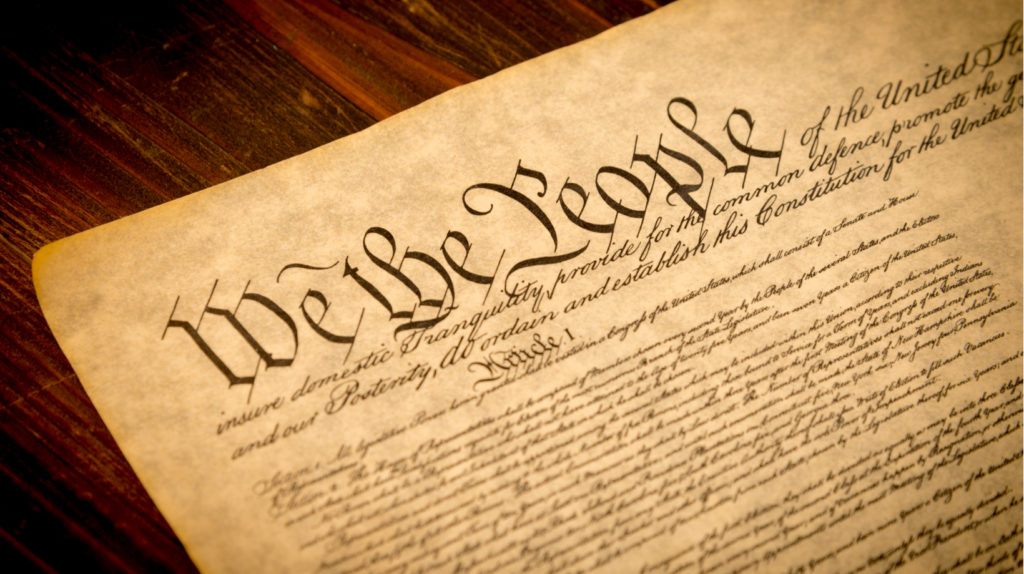How To Fix Democracy Through eLearning-Based Voter Education
Many of us pursued a career in Instructional Design because we believe it can make a difference. Especially now, as we ever-more-effectively combine the power of computer media, cognitive science, and the internet. As a society, we have never had access to this kind of eLearning capability before.
The capability is being profitably applied to formal education and to the business world. Could it, though, be applied to solve other critical societal problems? Consider, for example, the problem of political polarization in the United States. Democracy requires an educated citizenry, but political scientists (e.g. Achen and Bartels) have shown that voters today lack a clear understanding of the issues. eLearning is going to change that.
Getting Traction
Few of us would dispute the potential; however, the challenge is how to bring it forward. More than anything else, what is required for citizens, political leaders, and educational leaders, is to be able to visualize it. eLearning-based voter education will be demanded only when people visualize it and get excited about it. Voter education resources that are fun, low-stress, and provide real substance, will be sought out by voters. And it will help change the public dialogue.
Let’s start by letting our own imaginations loose. What can we expect from eLearning in the future, and how could it teach citizens about their economic and political worlds? Certainly, it will not rely on reading. Social learning will still be critical, though a lot of it will be online, and much of it with automated tutors and assistants. For core topics, huge, advanced resources will be built: simulations, animation libraries, interactive movies… all with personalization capabilities barely dreamed of today.
Technology and systems will evolve, but people in the future will be just as emotional, mentally lazy, and tribalistic as today. The human mind has certain quirks that must be accommodated. Short-term memory capacity, even among our greatest scientists, is extremely limited. Evolution has programmed us to fear people outside of the clan and to unceasingly scan our immediate environments. Learning obviously must be designed to work within these kinds of constraints.
Knowing The System
Our non-profit, nonpartisan organization, Know The System, aims to pull us forward into this future. As a modest attempt to help people visualize the future role of eLearning in our democracy, we are publishing a short online novella that depicts elements of this future. The novella is available online for free.
The technology depicted in the novella is advanced, though not magical – we’d hope no computer scientist today would roll their eyes at any of it. But the technology is just part of what is being illustrated. The other important part is to present ideas of what citizens need to be taught and how it could be taught. Here is a sampling:
- We will develop new ways to teach about public and private wealth – a prerequisite to understanding both inequality and labor economics more generally.
- Memorizing the three branches is not understanding government. New “bottom-up” expositions are necessary and will become standard.
- Voter education is the path to the needed understanding of economics, and new non-boring methods, including interactive movies and simulations, will make it possible to understand this complex topic.
- Simulations will also make it possible to understand taxation and its drivers, a subject that today, unfortunately, is negotiated via crude partisan slogans.
- Technology and interactive design techniques for understanding the private sector will ratchet up understanding quickly.
- Moral values and reasoning will be center stage when kids are taught about government.
- Our history will be made to come alive for young learners, not just in presentation but in personal interaction.
- Government agencies and branches will be compelled to explain themselves, to every category of citizens.
Remembering Our Own Excitement
In the day-to-day of budgets and deadlines, it can be easy to forget how exciting our enterprise is. It is important from time to time to take a few steps back and to realize how transformational this new technology could be for our society. eLearning was not even imagined during the first two centuries after our nation’s founding. In the 20th century, television news was a great innovation, but it has evolved in a direction that is more prone to generating outrage, propaganda, and melodrama than actual understanding of issues.
The changes facing our society – social media, automation and globalization, demography, culture – are difficult enough to navigate as it is. And political partisans take advantage of voters’ lack of knowledge: when voters are unable to critically evaluate an issue, they are easy to manipulate with rhetoric and specious argument. The only way to reverse the tide of polarization is to have an electorate that understands the issues, recognizes the tricks of political rhetoric, and has a basic understanding of economics and government.
The new tool of eLearning may provide a way out of our country’s current rut. I believe it is inevitable that it will be used to help “fix” democracy.
The big question is: when.









